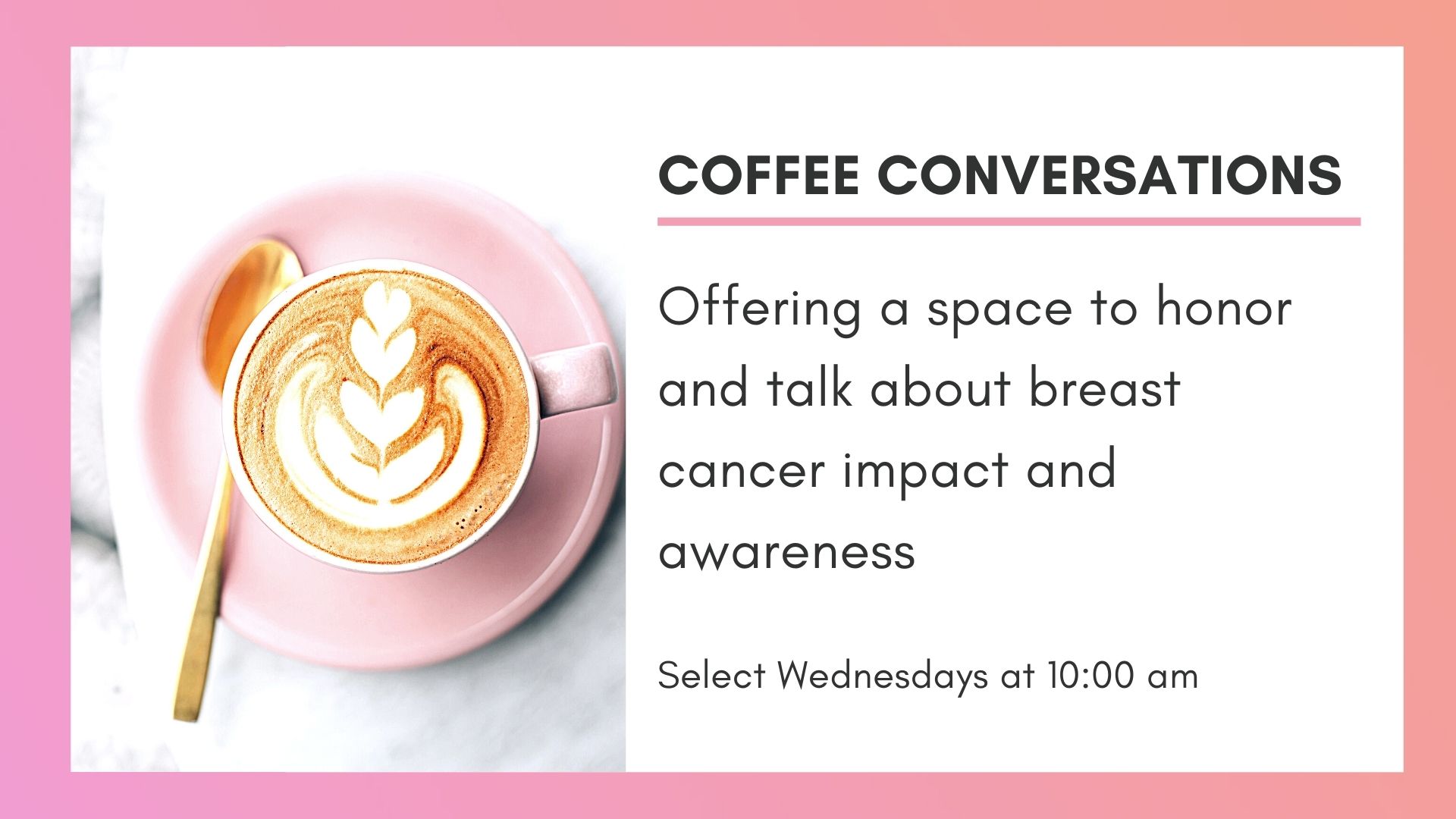If you missed our Coffee Conversation on Chemotherapy and the brain, never fear! We’ve summarized the conversation below. And, if you’d like to view the entire conversation, click here and head to our YouTube channel to check it and many others out!
About Dr. Kristen Triebel
Dr. Kristen Triebel is a clinical neuropsychologist who studies cancer-related cognitive impairment, often referred to as “chemo brain.” Her patients often complain of having difficulty thinking, remembering, coming up with words, and experiencing brain fog. She is funded by the American Cancer Society, NIH, and other private organizations and works in the Department of Neurology at UAB.
The Conversation
Dr. Triebel and her team at UAB are working to collect data and ensure oncologists and other cancer clinicians know that “chemo brain” is real, common, and there are treatment options!
- 1/3 of survivors notice brain fog prior to any treatment
- 70% of survivors experience changes in brain clarity during treatment
- 30% of survivors are still experiencing brain fog a year after treatment
According to Dr. Triebel, these statistics hold true across the field of cancer diagnoses and are not limited to breast cancer. Many survivors find that daily tasks take more mental energy, causing more mental fatigue. This often leaves survivors frustrated, upset, and frightened, which negatively impacts quality of life.
Dr. Triebel is currently working on figuring out why 1/3 of survivors begin to notice brain fog prior to beginning treatment. Through studying animals, she is testing the hypothesis that cancer produces inflammation in the brain pathways (a neuro-inflammatory response), causing these pre-treatment effects.
There are many factors that can contribute to “chemo brain,” including treatment (like chemotherapy or hormone therapy), menopause, and aging. Each of these can lead to fatigue, mood symptoms, anxiety, and depression. After treatment, a person may experience different kinds of changes, like:
- Trouble with attention and concentration
- Re-reading the same thing multiple times
- Having difficulty focusing on tasks, like paying your bills
- Being distracted and missing your exit on the highway
- Being unable to multitask or having trouble concentrating on a single task
- Memory
- Having difficulty finding
- Misplacing important items, like your phone, wallet or keys
- Feeling like you have to spend more mental effort to do tasks that used to not be as difficult
- Mood, Anxiety, & depression
- Experiencing increased anxiety and depression, especially during the first year of treatment
- Noticing an increase in brain fog, which can cause increased feelings of anxiety and depression
Dr. Triebel closed her presentation with suggestions for research-proven interventions to help manage brain fog and help you live a happier and healthier life.
- Exercise your brain (“Use it or lose it”)
- Learn new things, like how to dance or a musical instrument
- Keep a journal
- Consider counseling to help transition from the role of “patient” to “survivor” and help address any anxiety you may have about recurrence and moving forward after treatment
- Always pace yourself and keep your expectations reasonable (give your brain time to recover!)
- Move your body (but always check with your doctor first!)
- Improves mood and is a natural stress reliever
- Increases oxygen to the brain
- Increase chemical support for brain health
- Reduces fatigue
- Decreases chance of dementia occurrence
- Eat Right
Please check with your doctor before taking any vitamins/supplements. This list is provided as a resource to discuss with your medical team and should not be taken as medical advice.
- D3 & B12 supplements for memory
- Omega-3 fatty acids
- Calcium and magnesium
- Foods – what’s good for your heart is good for your brain!
- Lean protein, vegetables & fruits, omega-3 fats from wild salmon, fish oil, walnuts, and flaxseed
- Avoid fried foods and saturated and trans-fats. Limit how often you eat doughnuts, cookies, crackers, muffins, pies and cakes. Especially limit commercially fried foods and baked goods as they are most likely to contain high amounts of trans-fats.
- Reduce stress
- Meditate
- Relax
- Nap and sleep well at night
- Practice deep breathing and guided imagery
- Socialize and laugh – support groups & social support are excellent for stress reduction (*Please do take COVID-19 precautions seriously due to higher risk)
- Consider talking to your doctor about options for medication. Many meds commonly used for ADD are also helpful in combating “chemo brain.”
- Build Structure and learn time management
- Adding more structure and routine to your day will give you a greater ability to function
- Consider the time of day – you may have more capacity in the mornings before you get tired
- Pace yourself
- Prioritize tasks (now later, delegate to someone else, not necessary; make sure you spend your time on what really matters!)
- Keep a calendar of your activities and how you are feeling and review it several times a day
- Leave yourself messages and reminders – emails, alarms, sticky notes, and even friends can help
- Have a place for things that you use all the time – put your keys, phone, and wallet together in the same spot
- Technology is your friend – consider tracking devices like Air Tags & Tiles
- Consider asking for accommodations at work
- Record meetings
- Schedule rest periods & listen to your body
